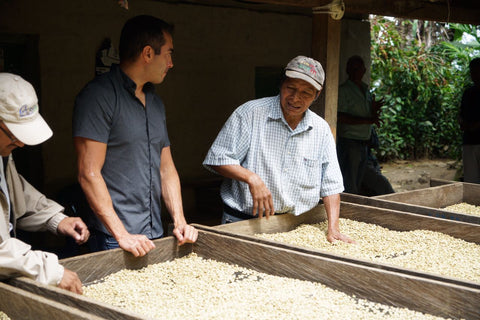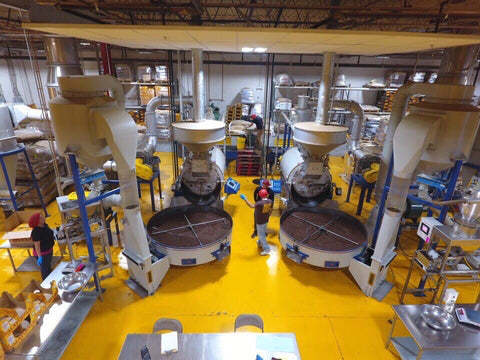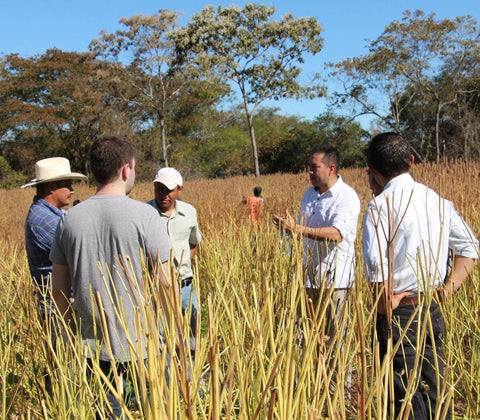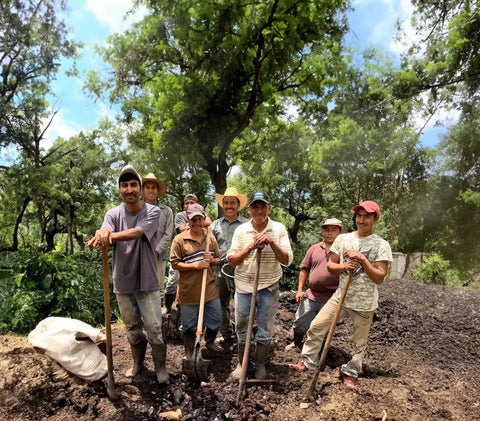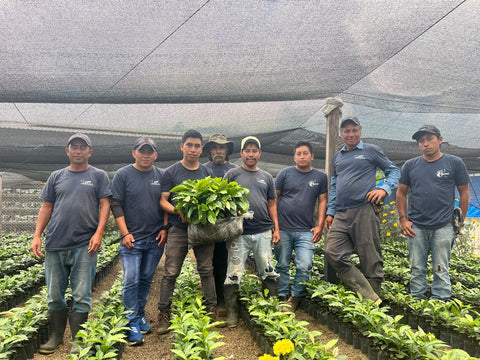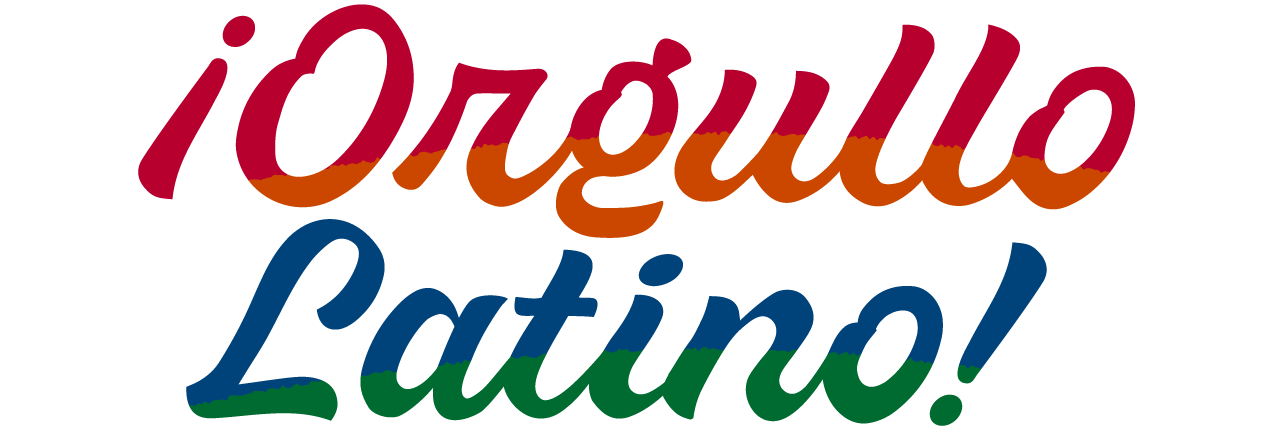ORGULLO LATINO
Reading time: 5 minutes
Martin Mayorga: "I saw the farmers’ hard work was just enough to keep them alive"
Author: Gabriella Oakley for Perfect Daily Grind
BY THE age of 10, Martin Mayorga had been through more than most of his US school peers would in their entire lives.
Earthquakes, revolutions, and terrorist attacks had forced him and his parents to move countries on more than three occasions, taking them on a journey from Guatemala to Nicaragua, Costa Rica, and Peru.
When the Mayorgas finally settled in the United States in the 1980s, Martin immediately stood out not only because of his Latino background but because he was more attuned to many of the world’s realities. As one of only two Latinos in his grade at school, he was initially targeted by other kids. But this only strengthened his resolve and confirmed what he had already learned: that looking forward was the only way to find solutions in life.
“When I came to the US, I got picked on for not speaking English and for the ‘weird’ food I brought to school,” Martin says. “I was small but I fought a lot and, after a while, the kids knew not to bother me.”
The damage that inequitable systems and exploitative businesses had inflicted on the countries in which he had lived left a particularly deep impression on him, instilling a sense of compassion for people who had become marginalized. “I saw the beauty and the positivity of the different countries where I lived while seeing the struggles created by these systems,” Martin says. “When it came to farmers specifically, I saw how their hard work provided them with just enough to stay alive.”

Empowerment Through Coffee
It is this enlightened worldview developed at such a young age that has served Martin through life. And in few places has this been more tangible than his immensely successful business, Mayorga Coffee.
Launched in 1997, Mayorga Coffee (formerly Mayorga Organics) works directly with hundreds of organic coffee farms and cooperatives across Latin America. It roasts the coffee from its base in Maryland, before shipping it to customers in the US and beyond.
Underlying Mayorga Coffee’s success, however, is not just a commitment to quality. It was built on – and subsequently pioneered – many of the pillars that have only recently become hallmarks of the “specialty” coffee industry.
“In the mid-90s, I was one of the first coffee roasters to ever focus on working directly with coffee producers,” Martin says. “I didn’t see the industry solely based on product and brand the same way everyone else did. I saw people and communities that had personally been impacted by the industry.”
Direct trade coffee is now widely seen as the most equitable way of buying coffee. Not only does it shorten the supply chain and reduce the number of hands that take a final cut, it also allows roasters to understand the precise needs of the farmers.
The thinking is that this will provide a more sustainable and fair relationship. However, for many roasters, self-interest continues to eclipse genuine motivation for change, which Martin says means his company continues to stand out even today.
“I will always feel like an outsider of the coffee industry unless it changes its formula of exploitation, greenwashing, dominance over producers, keeping the spotlight on themselves, and overzealous marketing claims with little to no human connection with producers and their communities. This has actually been my competitive advantage and has allowed me to see the system in a more direct manner.
“We’ve been swimming against the current and have built a strong brand and business despite not having the advantages so many of our competitors had. I recognized early on that what the industry says is very secondary to what the consumer wants.”

Mayorga Coffee: Leading by Example
One of Martin’s greatest skills lies in his ability to harness his experiences and apply them to create change.
Seeing the inequities that exist between coffee origins and consuming countries encouraged him to spearhead the movement towards direct trade; and witnessing the damage fertilisers inflicted on the land committed him to exclusively source organic.
Personal experience has also been at the heart of Mayorga Coffee’s mantra: Orgullo Latino. Printed on every bag of coffee, it involves embracing the opportunities a country like the US presents while continuing to be proud of your identity and cultural heritage.
“I believe that the United States is the single greatest country for opportunity and those who are willing to work hard can be the conduit to create this dream for themselves and their families,” he says. “Having lived in Latin America, I met too many smart, hard-working people who aren’t presented with a fraction of the opportunities that we have here.
“Unfortunately, too many of us have been kept from even having a chance to achieve it and it takes courage and leadership to create those opportunities if you’re facing inequalities. I’m a 100% Latino immigrant and I’m proud of it. It’s ingrained in everything Mayorga Coffee does and it’s a major part of why we’re so successful.”
Now, Martin focuses a lot of his time towards helping others realise their potential, too. Last year, his company was the leading sponsor of Producer & Roaster Forum, a two-day event held in a coffee origin that fosters direct relationships between roasters and farmers.
This involved taking groups of roasters to visit farms, where they had the opportunity to listen and learn from farmers directly – rather than simply assuming they knew it all already.
Martin also supports other aspiring entrepreneurs who come from historically marginalised groups, teaching them how to apply business acumen to carving out a space for themselves in the coffee industry. As he points out, empowerment is simply opportunity. And for someone who has been through a lot, he acknowledges that opportunity isn’t something that can always be found alone.
“I see too many of our own people sabotaging and minimising one another,” he says. “There’s more than enough for all of us out there. Let’s support each other and build each other up so that we can all have the American dream.”
The original article was published in Perfect Daily Grind.


